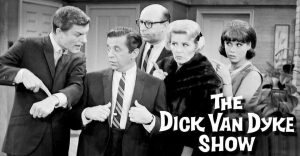10 Best Space Opera Anime

Science fiction is, and always has been, one of the bedrock genres of anime and manga. The freedom of artistic expression inherent in the medium of animation has allowed some of the industry’s most prominent creators to draw together imaginative otherworldly settings, speculating as to what life might look like for humans thousands of years into the future.
One of the tentpoles of anime science fiction is the space opera: a venerable genre that many all-time classics like Space Battleship Yamato and Legend of Galactic Heroes find themselves in. These are stories of great melodrama, tragedy, romance, and action, with the added bonus of all of that taking place in space. Space seems an appropriate setting for big stories with big themes, after all.
10 Space Battleship Yamato

Space Battleship Yamato is the prototypical anime space opera, bar none. Arguably the masterwork of mangaka Leiji Matsumoto, the artist often credited with creating the anime space opera as we know it, 1974’s Space Battleship Yamato tells the story of a lone ship on an impossible quest, but one that also represents the last hope of mankind.
With Earth’s surface reduced to rubble by unrelenting alien bombardment, the surviving governments of the planet place their last hopes aboard the battleship Yamato and her crew, sending them to the far reaches of space to break through enemy lines and recover a legendary device that may be the key to keeping humanity alive.
9 The Irresponsible Captain Tylor

Captain Tylor is not very operatic for a space opera, but that’s kind of the point. This ’90s series is more of a comedy than a sci-fi tale of romance, heroism, and tragedy, but it still belongs on this list because Captain Tylor finds most of its comedic beats by aping the tropes established in many of the other series listed in this article.
Our protagonist, Captain Tylor, is in a word irresponsible. He doesn’t hold lofty ambitions of freedom or honor; he joined the Space Force because he thought it would be easy. Unfortunately for him, his incompetence works against him, because he can’t stop bumbling his way into positions of authority, and solving life-or-death space situations by utter accident.
8 Galaxy Express 999

We can only imagine that Leiji Matsumoto woke up one morning with but one thought on his mind: “trains in space!”, which inspired him to create Galaxy Express 999. Class stratification is one of the biggest issues facing the galaxy in this lyrical sci-fi story because the rich of this society can purchase immortality by porting their brains into immortal mechanical bodies.
After losing his mother in a tragic attack, the show’s protagonist, Tetsurou, boards the Galaxy Express with a mysterious woman in hopes of obtaining one of these mechanical bodies for himself at the end of the line. Along the way the pair will visit strange worlds with unique societies, giving the series a Star Trek-esque episodic vibe.
7 Toward The Terra

Thousands of years into the future, humanity has spread out among the star systems of the galaxy after rendering their ancestral home of Earth unlivable. Omnipotent A.I. brains keep the systems of government running smoothly for everyone until certain humans start to change. In the far reaches of humanity’s empire, a new form of person is born. Called the Mu, these people with latent psychic abilities find themselves on the receiving end of persecution from their fellow humans. Their solution is to embark on a quest to return to the now mythical birthplace of humanity: Earth.
Viewers who want to give this series a shot have two options: a standalone 1980 movie, or a 2007 T.V. anime of the same name. Although the T.V. series is generally the better received of the two, those with an affinity for ’80s anime aesthetics won’t want to miss the movie either.
6 Space Battleship Yamato 2199

Living up to the legacy of the original Yamato was an extremely difficult task — that anime is considered to be seminal by many, and most would agree that it represents one of the most formative science fiction anime ever produced. Luckily, Space Battleship Yamato 2199 does exactly what a remake needs to do: it preserves the spirit of the original while updating certain concepts to suit the tastes of modern audiences.
In fact, 2199 does such a good job remaking the original that some consider it to be the superior version of the Yamato story, namely on account of some surprising twists it throws into the mix, and its more nuanced attitude towards the show’s antagonists. It’s still worth watching both, but newcomers to the genre might want to watch 2199 first.
5 Super Dimension Fortress Macross

“Do you remember love?” is the question Macross poses to its characters and its audience. This sweeping sci-fi melodrama takes a love triangle and then throws it into the middle of a spacefaring war with aliens hell-bent on humanity’s destruction. Romance and tragedy are to be found throughout the show’s conflicts, which seem to spring in equal measure from the fickle nature of the heart, and from an evil alien menace.
Considered a classic not just for mecha anime, but for science fiction and space opera in general, Super Dimension Fortress Macross plays out like a more romantic counterpart to 1979’s Mobile Suit Gundam. Where the latter was interested in gritty war drama and the inherent tragedy associated with such a setting, Macross takes on a loftier tone; showcasing heroics, romance, and the power of love.
4 Martian Successor Nadesico

Part parody and part earnest love letter to science-fiction anime, Martian Successor Nadesico tells the story of a band of misfits who inadvertently become Earth’s last line of defense aboard the prototype battleship Nadesico. Featuring frequent battles involving robots and spaceships, Nadesico frequently makes direct reference to the classic titles in its genre for the purpose of parody, only to fall back on the very tropes it lampoons to deliver some surprising emotional punches.
That might make it sound like the show is at odds with itself structurally, but it makes it work. While simultaneously making fun of and effectively utilizing common sci-fi anime tropes, the show comes across as a sort of meta portrait of why we love certain entries in the genre so much. Yes, things might seem silly from the outside, but there’s beauty in that silliness too.
3 Space Pirate Captain Harlock

Space Pirate Captain Harlock tells the heroic story of the titular protagonist, Captain Harlock, as he leads his ship and crew on a quest for liberty among the stars. Captain Harlock might be a pirate, but he’s a noble one, and he’s prone to waxing poetic about humanity’s destiny, man’s yearning for freedom, and the values of courage and honor in an upstanding individual.
It is, in a word, romantic. Although the presentation of its themes and its unwavering idealism might seem a bit dated at times, that’s really a big part of the appeal. Those who want to lose themselves in a heroic story about honorable pirates facing impossible odds (in space!) look no further than Captain Harlock.
2 Crest Of The Stars

Crest of the Stars and its many sequels layer in a love story with tense ship-to-ship combat action, all set in a wonderfully complex galaxy full of competing factions, ambitious leaders, subterfuge, and politics. There’s a little something for everyone here — those who aren’t as in love with imaginary space politics might still find themselves drawn to the series by the romance or the action.
The setting also does an excellent job of making this series feel believable. Each interstellar power at play in this story has an interesting backstory and complex goals, which makes learning about this world’s history almost as fun as watching spaceships blow each other up.
1 Legend Of Galactic Heroes

What list of space opera anime would be complete without Legend of Galactic Heroes? This long-running classic appears on many a list of favorite anime out there, but when newer fans realize that the show clocks in at approximately 110 episodes, plus movies, they might feel a little bit intimidated.
Don’t be. Legend of Galactic Heroes is long, yes, but it’s exceptionally well-paced and features a diverse and likable cast of characters, meaning that this show is hard to put down once someone’s picked it up. That all comes packaged with one of the most nuanced portraits of war, politics, and personal ambition that the medium has to offer, making LoGH an epic that stands the test of time.
About The Author

















